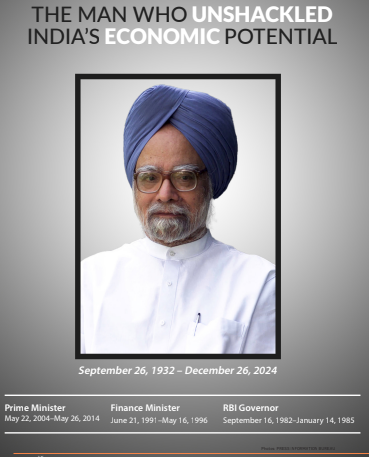
India lost one of its greatest leaders in the closing days of 2024. Manmohan Singh was a man of many parts, who played the most important role in India’s economic development and social justice
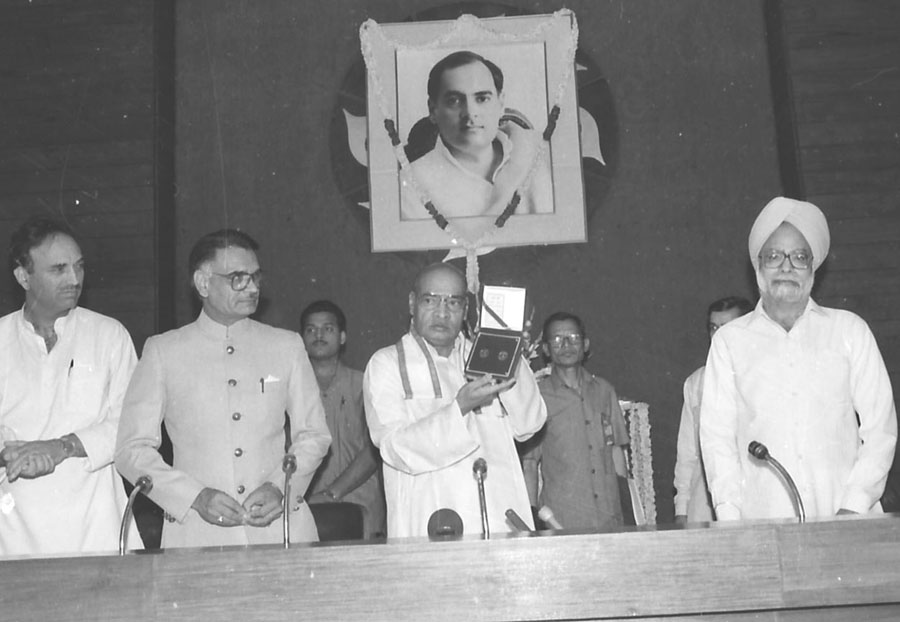
Prime Minister P.V. Narasimha Rao, flanked by Finance Minister Manmohan Singh and (left) Lok Sabha Speaker Shivraj Patil and Parliamentary Affairs Minister Ghulam Nabi Azad, releasing a Rajiv Gandhi commemorative coin
The story of Dr Manmohan Singh is a tale of intellect, perseverance, and quiet dignity. On the cold and rainy morning of December 28, 2024, the world bid farewell to one of India’s most distinguished leaders—a man who reshaped the country’s economic and political fabric with his calm demeanour and unyielding resolve. He breathed his last on December 26 at the All-India Institute of Medical Sciences, New Delhi, after being admitted for age-related health issues. He was 92. Born in Gah, a small village in Punjab, now in Pakistan, on September 26, 1932, Singh’s life spanned decades of immense change, challenges, and triumphs. His was a journey from the dusty lanes of a partitioned India to the corridors of global power, where he left an indelible mark as an economist, policymaker, and prime minister. Singh’s early life was marked by the upheaval of the Partition—a searing chapter in Indian history that uprooted millions. His family’s migration to Amritsar laid the foundation of his lifelong commitment to education and hard work. A brilliant student, Singh excelled in studies, eventually earning scholarship to the University of Cambridge, where he pursued economics. Later, at the University of Oxford, he wrote his doctoral thesis on India’s export competitiveness, a topic that presciently fore-
shadowed his future contributions to the country.
As an economist, Singh’s brilliance was evident from the start. After his return to India, he joined academia and later moved into public service, taking on roles that steadily increased in significance.
By the 1980s, he had earned a reputation as one of the country’s foremost economic thinkers. His ten-
secretary showcased his ability to navigate complex financial systems, balancing the demands of a growing nation with the constraints of a closed economy. But it was in 1991, when India faced a dire economic crisis, that Manmohan Singh’s mettle was truly tested. Appointed as finance minister by then Prime Minister P.V. Narasimha Rao, Singh inherited an economy on the brink of collapse, with dwindling foreign exchange reserves and skyrocketing inflation. It was a moment that demanded both courage and vision, and Singh delivered both with aplomb. In his now-iconic budget speech, he laid out a roadmap for liberalising India’s economy, opening it to global markets, and dismantling decades of bureaucratic controls. His reforms were not without opposition, but Singh’s clarity of purpose and ability to articulate the long-term benefits of change won over sceptics.
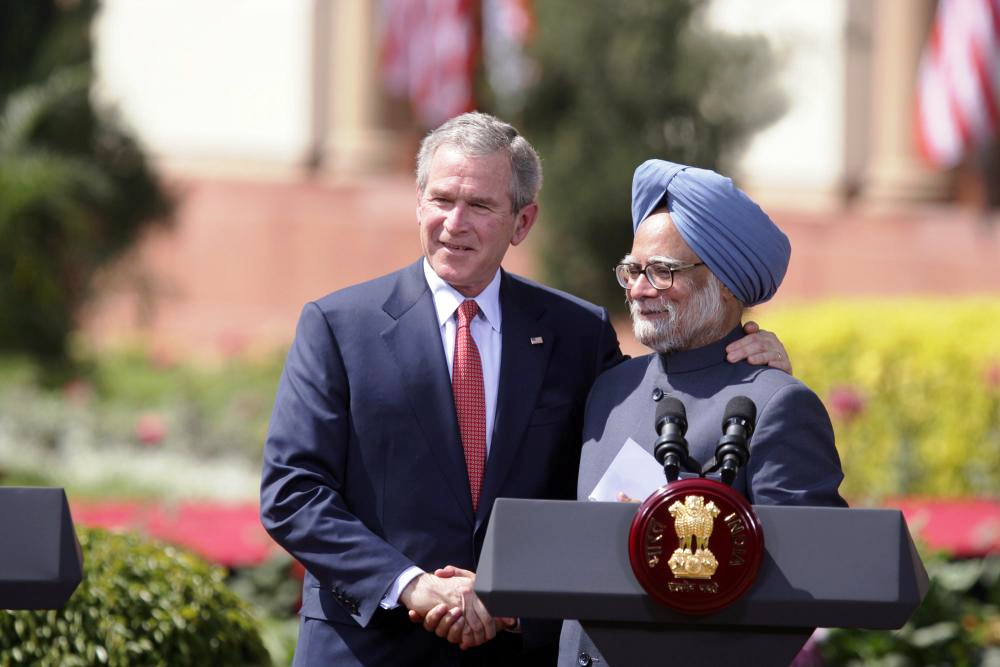
Singh with the 43rd US president, George W. Bush, after securing the historic India-US nuclear deal on March 2, 2006 in New Delhi
liberalisation of the 1990s transformed India, setting it on a path of unprecedented growth and integration into the global economy.
Singh’s years as finance minister earned him the respect of policymakers and citizens alike, but his journey was far from over. In 2004, the Congress party’s unexpected electoral victory brought him to the pinnacle of political power. With Sonia Gandhi declining the role of prime minister, Singh was chosen to lead the government. It was an unconventional choice in Indian politics, where charisma often trumps competence, but Singh proved to be an inspired selection.
As India’s 14th prime minister, Manmohan Singh brought a sense of gravitas as well as humility to the office. He was a man of few words, often shying away from the theatrics of politics, but his actions spoke volumes. His tenure saw India emerge as a
global economic power, with growth rates that were the envy of the world. He championed transformative social policies, including the Mahatma Gandhi National Rural Employment Guarantee Act (MGNREGA), which provided a safety net for millions of rural families. While he is widely acknowledged as the man who wrought the economic transformation
of India, his achievements in pushing through rights based legislation such as the Right to Information Act, the Right to Education Act, the Food Security Act, etc., are equally pathbreaking.
Internationally, Singh was a respected states man, forging key partnerships and enhancing India’s stature on the global stage. His role in securing the India-US Civil Nuclear Agreement was particularly noteworthy, as it ended decades of nuclear isolation and signalled India’s arrival as a responsible nuclear power. Despite fierce opposition from political rivals, Singh stood firm, navigating complex diplomatic waters with his characteristic composure.
However, Singh’s tenure was not without challenges. His second term as prime minister was marred by allegations of corruption within his government, which tarnished the Congress party’s image and undermined public trust. Critics accused him of being too reticent and failing to assert control over his ministers. Yet, even in the face of such adversity, Singh remained dignified, refusing to engage in mudslinging or political vendetta. His qui-
et resilience and personal integrity remained untouched, even as the political landscape around him grew increasingly volatile.
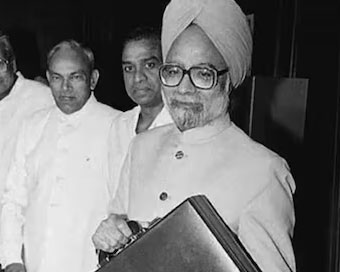
Singh on his way to deliver the historic budget speech in 1991
Manmohan Singh’s legacy is a study incontrasts. To his admirers, he was the architect of modern India’s economic resurgence, a man of unassailable integrity who brought dignity to public life. To his detractors, he was a reluctant politician who struggled to navigate the rough-and-tumble of democratic politics.
Yet, what is undeniable is his profound impact on India’s trajectory. His reforms not only lifted millions out of poverty but also inspired a generation to dream bigger and aim higher.
In his personal life, Singh was a devoted family man, married to Gursharan Kaur, who was his steadfast companion for nearly six decades.
Together, they raised three daughters, fostering a close knit family grounded in humility and values. Singh was known for his simplicity, often eschewing the trappings of power. Even as prime minister, he retained an unassuming demeanour, a reminder that leadership is not about flamboyance but about service.
As news of Singh’s passing spread, tributes poured in from across the globe. Leaders from all walks of life hailed his contributions, not just to India but to the world. Economists lauded his visionary policies, while political contemporaries
reminisced about his decency and commitment to consensus-building. For ordinary citizens, he will be remembered as the “accidental prime minister” who rose above partisanship to serve the nation with sincerity and dedication. In the final years of his life, Singh stepped away from the public eye, his health requiring rest and recuperation. Yet, his presence loomed large in India’s collective memory. For young Indians who grew up during his tenure, he was the face of a country brimming with possibility, a symbol of how intellect and integrity could triumph in a system often riddled with cynicism. Singh’s life is a testament to the power of quiet leadership and the enduring value of public service. He was a man who wore his achievements lightly, choosing to let his work speak for itself. In an era often dominated by loud rhetoric and divisive politics, Singh stood as a beacon of moderation and reason. His legacy will endure in the institutions he strengthened, the policies he championed, and the countless lives he touched.
As India moves forward, it will do so on the foundation laid by leaders like Manmohan Singh, who devoted their lives to the country’s progress. His story will continue to inspire generations to come, a reminder that true greatness lies not in seeking power but in using it wisely and compassionately.



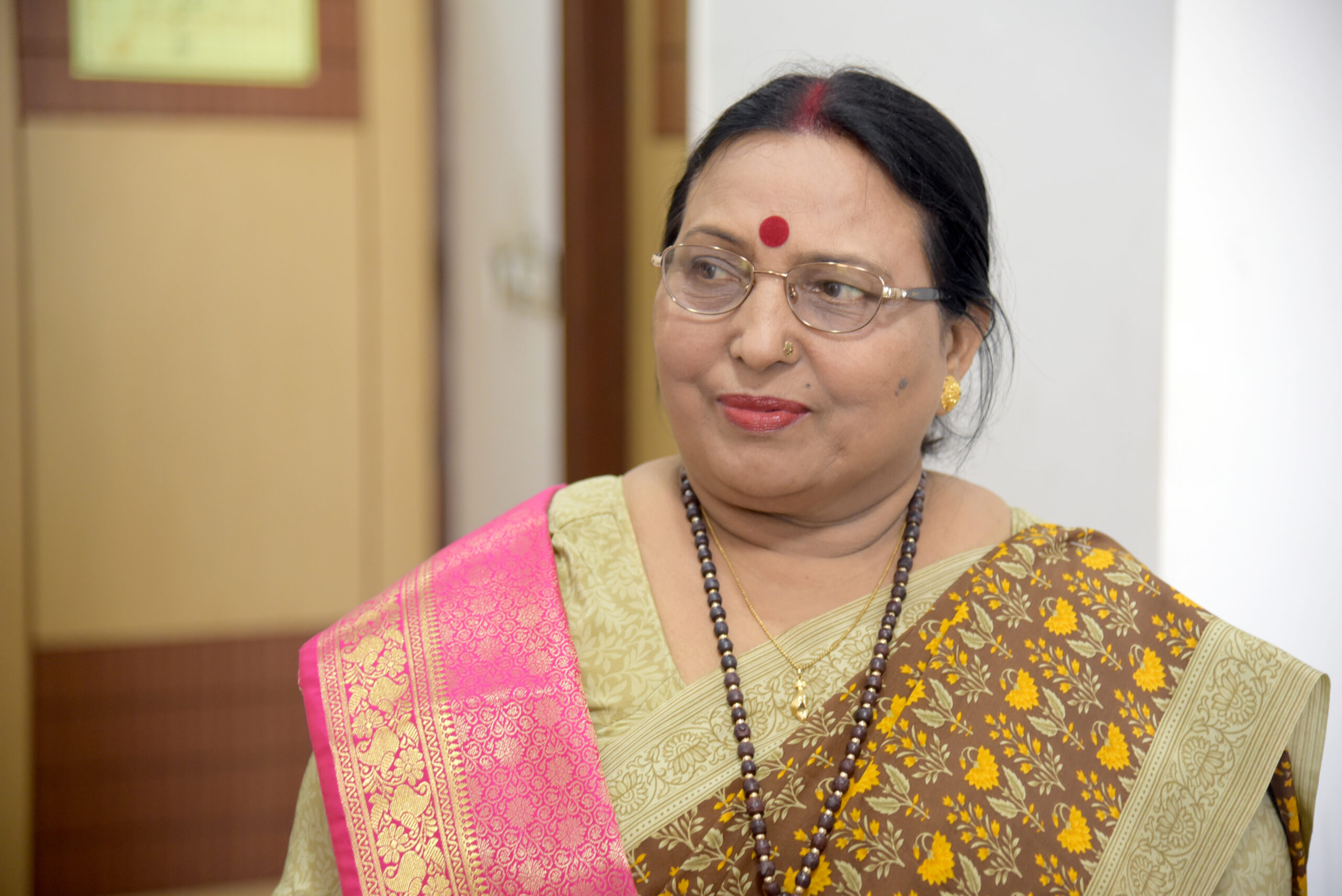
Add Comment